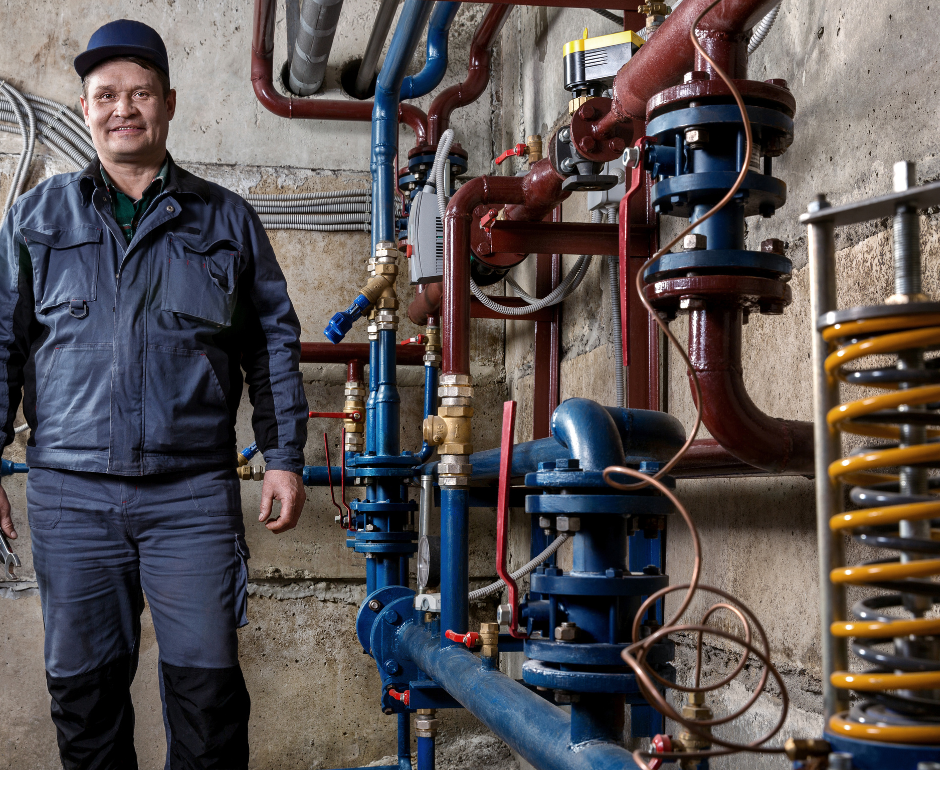The average age of someone working in the trades is 45 years old—the average age of a master plumber is 58. The starting salary is roughly $1,000 a week (according to salary.com, in 2021 the average salary of a plumber was $58,059, well above the U.S. average of $31,133). And that salary is known to double within six years. Nonetheless, the plumbing industry struggles to attract the younger generation. To get a clearer picture on what tomorrow’s plumber will look like, this blog discusses the benefits of the job, examines growth trends, and interviews a few plumbers to hear about their experiences.
Attracting The Younger Generation.
Being a plumber is a labor-intensive job and many may not be prepared to (physically) work that hard to make a living. Others may feel that they don’t have the skillset to work in the trades, while some don’t perceive being a plumber as a prestigious job. While Plumbers may not wear a suit and tie or host fancy corporate get-togethers, they are considered an “essential” job (that is currently in growth mode). Just like how doctors are vital to healthcare and lawyers are crucial to the legal system, plumbers provide services that are necessary to maintaining the safety, sanitation, and essential operation of residences, businesses, and buildings.
According to allied market research, the plumbing industry will generate exponential revenue growth in 2022. In 2027, $20.41 billion will have been generated, up from $11.53 billion in 2019. This represents a 5.6% CAGR from 2020 to 2027.
Ups and Downs but Work Remains Steady
Since 2019 new nonresidential construction has declined due to the COVID-19 pandemic, which impacted the commercial sector. On the flip side, residential construction started to grow. As the economy continues to open back up it is likely commercial construction will rise again… however, with rising interest rates, the residential market may start to fall. These trends show that regardless of the economy, the plumbing industry remains strong.
Plumbing Technology
A market research group for the plumbing industry discusses 2023 trends calling out how homeowners across the U.S. are embracing smart technology in their homes and offices. As it relates to plumbing, this includes everything from smart toilets and motion-sensor faucets to smart leak detectors. These products are designed to make life easier for American households while conserving water and energy as well as preventing things like water damage. This Old House reports that innovations like smart pipes that let consumers know when there’s a leak, tankless water heaters, and even LED lights in toilet bowls have transformed the industry for both consumers and industry professionals.
With so much excitement and growth, it’s a wonder why more men and women aren’t flocking to the industry. Job security, helping people get access to clean water, little to no debt from student loans, and growth opportunities are just a few benefits of working as a plumber.
We sat down with a few plumbers and asked them why they chose to become a plumber, what is most rewarding about being a plumber, and what is the biggest challenge.
Plumb Rich Plumbing
The main reason I decided to get into plumbing was for the job stability. The world is a crazy place at the moment, but plumbers are always needed. Additionally, a good plumber will always be guaranteed work. The hardest part for me personally is the paperwork. I find that the clerical side to be the most tedious task to complete rather than the actual job itself. I’m better with the hard labor, which in my opinion is more important. Some jobs can be stressful, especially emergency calls. However, the most rewarding part of the job is seeing the completed end results! It’s a great feeling to see your client’s face after finishing a daunting or complex job. I’m so grateful to be in a position to help people with their plumbing needs.
As a side note, I do find the art of soldering to be very rewarding as well. My advice to any future plumber is to get in while you’re young and always be willing to work hard and learn. This is a career that can provide for you and your family. Always be willing to learn and grow. This is a trade that takes a lot of hard work, perseverance, and dedication. Everyday has a teaching moment. Plumbing can provide you with a blessed life as long as you work hard through the blood, sweat and tears.
Colin the plumber
I got into plumbing from a buddy who was pushing me to join the plumbing side of a construction company. I had no idea I would gravitate so much towards it. Plumbing for me always has its challenges, I’ve been plumbing for about 10-12 years, and I believe the hardest part for myself is the “On Call” which is 24/7 for myself. Being a one-man operation keeps you on your toes. The most rewarding part is servicing the community and making connections with people who need services. Some advice for newbies getting into plumbing would be “you have to have a dog in you” gotta be willing to grind all day and all night. Service plumbing is a different animal.
Brian G.
I chose plumbing because I really enjoyed the history of how plumbing got started. I also love working with my hands and showing my craftsmanship and I felt like the best way to show it was through plumbing. There are so many ways to show how neat and clean you can make things and how awesome things can look I believe the hardest part was finding a company that truly values you but that’s in every industry the most rewarding is starting a job taking before pictures and after picture and how different and cleaner your work is. I would say that if they love working with their hands, want to get into a trade and have the option to do what they love, then plumbing is 100% for them.
Jared P. HVAC
I choose HVAC after I got out of the military. I did not know what I wanted to do, however, knew I wanted to work with my hands. Someone suggested HVAC and here I am 7 years later still loving it. I would say that the hardest part would be getting used to the odd/ long hours. Sometimes it’s tough to get a good work/life balance but when you do, you’re gold. The most rewarding part of the industry to me is getting to see the finished product. You spend all that time knocking down a 50-year-old boiler. The reward is seeing the artwork you can make of what was originally there. My advice would be, never stop learning. Things change every day. The more you stay on top of what’s to come, the easier it will be on you when things like new technology comes along as the new standard.
Travis A.P. Plumbing and Heating
I chose plumbing by default. I went to trade school for HVAC but didn’t jump right into it after high school. My grandfather had a painting and wallpaper hanging business and needed help, so I worked with him. After a while he wanted to hand the business over to me. As much as I loved the final product, when I was done, I found the job boring. At the time there were no open positions for an HVAC apprentice, so I found a plumber who wanted an apprentice, and I started working for him. I loved the challenge of the work, and never looked back.
The hardest part of the job for me is keeping up with the business end. Paying ALL taxes on time, keeping up with estimates, invoices, making sure bills are paid, etc. Thankfully my wife works for me now and takes on most of that burden.
The most rewarding thing about my job is solving a problem after other companies couldn’t. The relief on a homeowner’s face is very satisfying. And it’s a double win because now you have a customer for life.
My advice is to just expect a lot of work. It’s not easy, but it pays off if your serious and stick with it. Don’t be afraid to make a mistake because everyone does. It’s how you get out of it that matters. Learn as much as you can from a variety of people that way you can really hone your skills and be more well-rounded. Ask questions but don’t be mouthy about it. You learn by asking but you can also shut someone down by how you ask. Be respectful.
What does it take to become a plumber?
The steps are not hard or time consuming and working within a trade can be very rewarding.
1. Get your high school diploma or GED
2. Complete vocational training for plumbing
3. Complete a plumbing apprenticeship
4. Get licensed
5. Gain experience
If you are on social media, look around at the younger plumbers who are using these platforms to show time lapse videos of their work, before and after photos, behind the scenes postings and more. It’s an industry in need of a fresh perspective and new ideas to keep things moving forward. This past year Matco-Norca has partnered with Plumber Without Borders to help bridge the gender gap in the trades and to educate the younger generation on why it’s a viable career path. In 2023 we plan to offer scholarships to up and coming students looking to explore the trades.
For 70 years, Matco-Norca has been the leading supplier of globally sourced, code-compliant Plumbing & PVF products for use in residential, commercial, and industrial applications. We source Matco-Norca branded fittings, pipe nipples, valves and plumbing specialties to wholesalers serving contractors and municipalities throughout the USA.
SVF Flow Controls is a recognized leader in flow control technology. We offer a full range of superior-quality engineered valves, actuators and controls for unique applications such as high pressure and high purity. Designed of exotic alloys, SVF Flow Controls serves many industries including; chemical, biotech, semiconductor, pharmaceutical, petro-chem, food & beverage, oil & gas, refining, etc.


